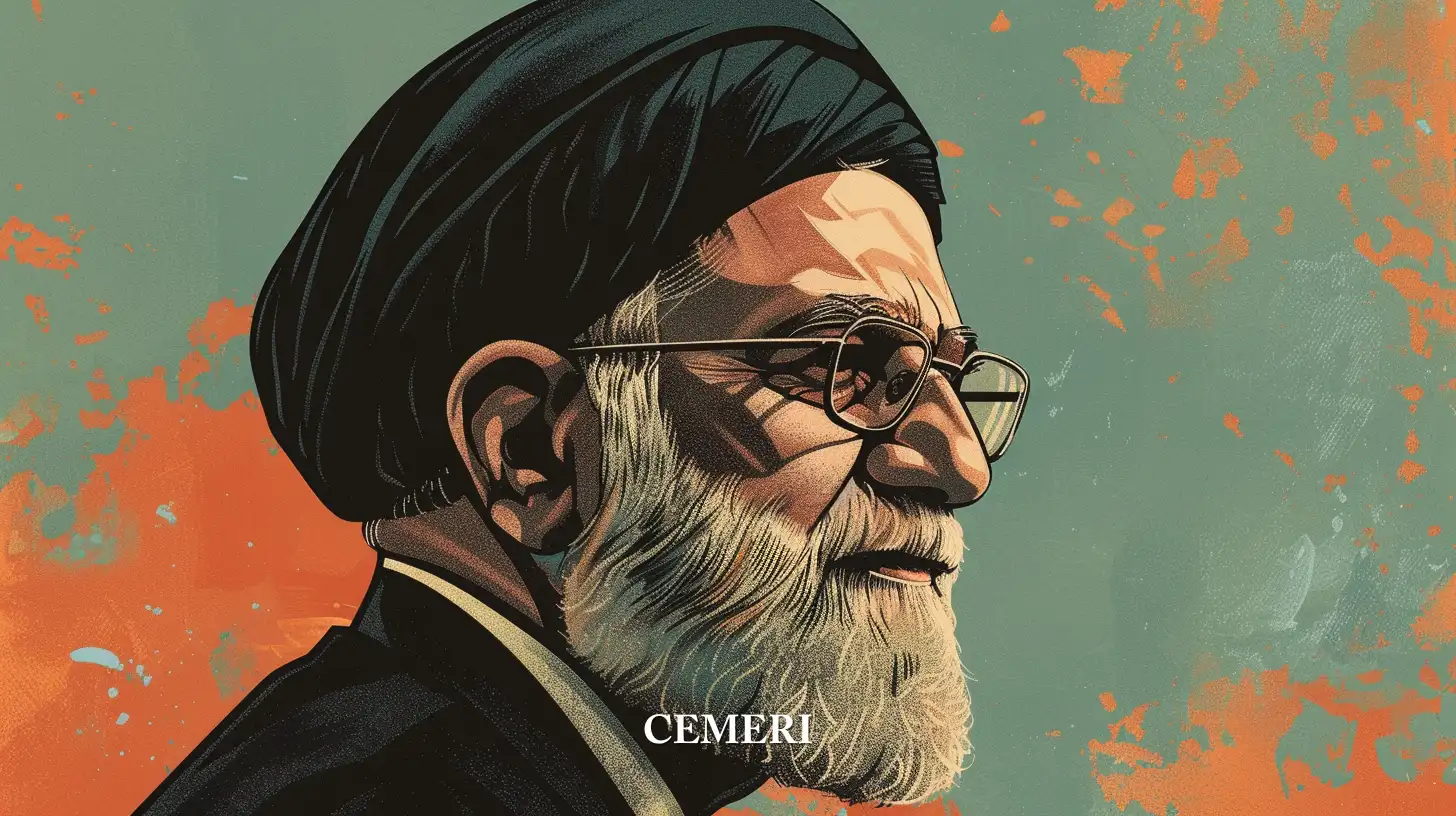Analysis
Paulina Villegas
Five days of mourning in Iran: the death of Ebrahim Raisi
- At a moment of great tension in the Middle East, the death of the President of Iran, Ebrahim Raisi, was confirmed.

In a moment of great tension in the West Asian region, amidst the war in Gaza and weeks after a missile attack on Israel, following an unfortunate helicopter accident, on May 19, the death of Ebrahim Raisi, a conservative politician and President of Iran, was confirmed.
Ebrahim Raisi: Key Figure in the Iranian Regime
Ebrahim Raisi, the second most important official in the country, below Ayatollah Ali Khamenei, came to power in 2021 after winning one of the most questioned elections of contemporary times in the Middle East.
Raisi became president after a long career in the judiciary sector driven by Ayatollah Khamenei. For years, he served as the Chief Justice of Iran, calling himself a “defender of Human Rights,” a position in which he was accused of being part of the “Death Committee,” a group of four judges who ordered the execution of more than 4,000 political prisoners as a result of the Iran-Iraq war of 1988.
As president, Ebrahim Raisi's term was marked by dominating in a difficult era for an Iran facing various challenges, including an economic crisis, growing regional tensions, and an uncertain future regarding the revival of a nuclear agreement with the International Atomic Energy Agency and world powers.
The implementation of conservative policies and a constant intensification of repression against activists and the regime's opposition were some of the many phenomena characterizing Raisi's mandate, not to mention his involvement in the war in Gaza.
However, despite being labeled as ultra-conservative and responsible for crimes against humanity, Ebrahim Raisi, who had deep connections with the Iranian clergy, appeared to be one of the favorites and possible successor of Ali Khamenei, the Supreme Leader of the Islamic Republic of Iran.
War in Gaza: The Future of Iran and Israel
Iran's involvement in the war in Gaza has not only jeopardized the stability of West Asia but has also been redefining the balance of power at a time of ongoing geopolitical uncertainty.
Its close relationships with militias such as Hamas in the Gaza Strip and Hezbollah in southern Lebanon date back to the end of the Islamic Revolution, under a sentiment of religious sympathy and defense of the Shiite community against aversions by the Hebrew government, which to this day, have translated into solid Iranian support as participants in various attacks against the State of Israel, highlighting the unprecedented recent launch of more than 300 missiles and drones intercepted by Israeli air defenses with support from the United States, the United Kingdom, and Jordan.
Iran's sympathy and support have transformed into a growing intensification of the situation in the region and, above all, of the already fragmented relations with Israel since the late 1990s.
Following the death of Iran's president, Hamas and Hezbollah leaders mourned the passing of Ebrahim Raisi, highlighting the role Raisi's legacy has played in supporting the Palestinian struggle and as a “protector of resistance movements.” On the other hand, among the condolences from various countries such as Russia, China, and Syria, the sense of alliances and solid cooperation Iran has had with these states stood out.
On the other hand, informed of Raisi's demise, Joe Biden has not issued any statement, given the fragile relationship between the two states since Ebrahim R. came to power and adopted a more closed stance regarding negotiations with the United States. The ongoing conflict in Gaza has only complicated the relationship between the two nations.
With the recent misfortune, negotiations between Iran and the United States could reach a turning point, with an opening for dialogue. However, the course both countries take, as well as the direction of Iran's foreign policy, will be defined by the arrival of the next successor, as the recent death of Iran's president seems to indicate that efforts to maintain peace could be in jeopardy, given Iran's importance in Middle Eastern geopolitics, the balance of power, and its solid relations with Hamas and Hezbollah.
The selection of Raisi's successor will be a key indicator of Iran's future and the direction it will take, especially in its relations with Israel, the United States, and other key regional and international actors, particularly focusing on the current conflict in Gaza.
At the moment, Iran has declared that it will continue to operate without any disruption, mourning the death of its president, with an already selected interim government led by Vice President Mohammad Mokhber.
In the next 50 days, according to the Iranian constitution, the three branches of the nation must conduct a presidential election to allow the Islamic Republic of Iran to have the strength to face the crisis the region is going through, in a critical context for the balance of power in West Asia.
Sources
¹EITB. (2024, 19 de mayo). ¿Quién era Ebrahim Raisi?
1. Al Jazeera. (2024, 20 de mayo). Iran’s President Ebrahim Raisi confirmed dead in helicopter crash. https://www.aljazeera.com/news/2024/5/20/rescuers-say-no-sign-of-life-as-wrecked-helicopter-of-irans-raisi-found
2. BBC News. (2024, 20 de mayo). Irán: quién era Ebrahim Raisi, el ultraconservador presidente iraní que murió en un accidente de helicóptero - BBC News Mundo. BBC News Mundo. https://www.bbc.com/mundo/articles/cd117q283vgo
3. CNN. (2024, 20 de mayo). Resumen de noticias del accidente el helicóptero del presidente de Irán este 19 de mayo. https://cnnespanol.cnn.com/2024/05/19/resumen-noticias-accidente-helicoptero-iran-domingo-19-mayo-orix/
4. Kaur, S. (2024, 20 de mayo). The Geopolitical Impact of Iran President Raisi's Death in Helicopter Crash. Y20 India. https://y20india.in/the-geopolitical-impact-of-iran-president-raisis-death-in-helicopter-crash/
5. Mora, V. (2024, 20 de mayo). La muerte del presidente de Irán amenaza aún más la situación de Oriente Medio. Bolsamania.com. https://www.bolsamania.com/noticias/internacional/muerte-presidente-iran-amenaza-situacion-oriente-medio--16806617.html
6. Najdi, Y. (2024, 20 de mayo). ¿Quién era Ebrahim Raisi? – DW – 20/05/2024. dw.com. https://www.dw.com/es/quién-era-ebrahim-raisi-difunto-presidente-de-irán/a-69131842

